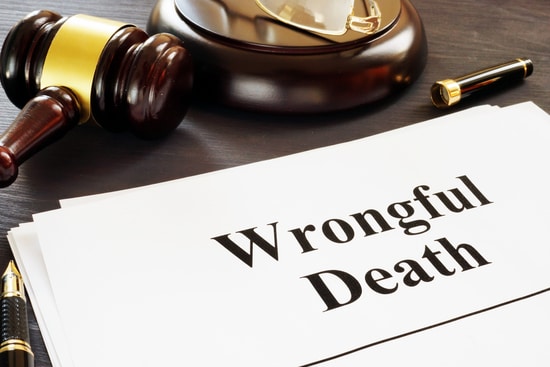Misunderstood Role of Wrongful Death Attorneys in Our Legal System

When discussing the critical role of wrongful death attorneys, it’s paramount to delve into the complexities and nuances of such cases. These legal professionals are not just lawyers; they are advocates for justice in the most trying times for families. Their work often goes unrecognized in the broader spectrum of the legal system, yet their impact is profound and lasting.
Table of Contents
Understanding the Scope of Wrongful Death Cases
At the core of wrongful death cases lies the heart-wrenching reality of losing a loved one due to someone else’s negligence or wrongdoing. This loss is not just emotional but also financial, and often, families are left grappling with a future they hadn’t foreseen. Here is where the expertise of a wrongful death attorney becomes invaluable.
The Emotional and Legal Complexities Involved
The journey of a wrongful death lawsuit is fraught with emotional and legal complexities. Consider the story of Maria, whose father was tragically killed in a construction accident. The emotional toll was immense, and the thought of navigating legal proceedings seemed insurmountable. This is a common feeling among those who find themselves unwittingly thrust into these situations.
The Role of a Wrongful Death Attorney: Beyond the Courtroom
The role of a wrongful death attorney extends far beyond courtroom appearances. They are counselors, negotiators, investigators, and, most importantly, compassionate listeners. Their work involves understanding the intricate details of the incident, the victim’s life, and the family’s needs.
Offering Compassionate Guidance
For individuals like Maria, the attorney’s ability to offer compassionate guidance through the legal maze was a beacon of hope. These attorneys don’t just build a case; they build a relationship with those they represent, offering a shoulder to lean on during one of the most challenging times in their lives.
Navigating the Legal System with Expertise
A wrongful death attorney’s expertise in navigating the legal system is unparalleled. They understand the complexities of laws that vary from state to state and how to maneuver through the labyrinth of legal procedures effectively.
Strategic Approach to Litigation
Their approach to litigation is not just about proving a point in court but also about understanding the nuances of negotiation, settlement, and trial strategy. They analyze every angle, foresee potential challenges, and craft a path that leads to the best possible outcome for their clients.
The Importance of Choosing the Right Attorney
Choosing the right wrongful death attorney is a decision that cannot be taken lightly. It’s about finding someone who not only has the legal acumen but also the empathy to understand what the family is going through.
Criteria for Selection
When selecting an attorney, consider their experience, track record, approach to handling cases, and their ability to communicate complex legal issues in an understandable manner. It’s also crucial to gauge their level of compassion and commitment to your case.
Real-Life Examples: Learning from Experience
Incorporating real-life examples, such as Maria’s story, provides valuable insights into the world of wrongful death litigation. Each case is unique, but the common thread is the need for a skilled, empathetic attorney to guide families through this tumultuous journey.
Lessons from the Frontlines
These real-life stories teach us about the resilience of families, the complexities of legal battles, and the crucial role attorneys play in helping clients find some semblance of justice and closure. They also highlight the importance of having legal representation that is both skilled in the courtroom and compassionate outside of it.
In conclusion, wrongful death attorneys play a multifaceted role in our legal system. They are not just legal representatives; they are vital support systems for families navigating the most challenging times of their lives. Their work, often misunderstood and undervalued, is fundamental to the pursuit of justice and the provision of much-needed closure for those who have lost a loved one. Understanding their role, selecting the right one, and learning from real-life experiences are key steps in ensuring that justice is served in these deeply personal and complex cases.

 Drug-Related Cases in Chicago
Drug-Related Cases in Chicago  Answers To Common Questions About Reckless Driving Accidents In Las Vegas
Answers To Common Questions About Reckless Driving Accidents In Las Vegas  Seeking Justice: Statute of Limitations and Filing Deadlines for Truck Accident Claims in Phoenix, AZ
Seeking Justice: Statute of Limitations and Filing Deadlines for Truck Accident Claims in Phoenix, AZ  How Water Contamination Lawsuits in North Carolina Works
How Water Contamination Lawsuits in North Carolina Works  Common Challenges Applicants Face During SSDI Application Process
Common Challenges Applicants Face During SSDI Application Process  Deportation Defense in Atlanta
Deportation Defense in Atlanta  The Evolution of Traffic Laws: How Road Regulations Have Changed Over Time
The Evolution of Traffic Laws: How Road Regulations Have Changed Over Time  Are LLCs More Cost-Effective Than Corporations? Exploring the Costs of Formation
Are LLCs More Cost-Effective Than Corporations? Exploring the Costs of Formation  Ready to Ship Engagement Rings in Singapore: A Perfect Choice for Your Special Moment
Ready to Ship Engagement Rings in Singapore: A Perfect Choice for Your Special Moment  Vehicle Accident Lawyers: Expert Legal Support for Your Claims
Vehicle Accident Lawyers: Expert Legal Support for Your Claims